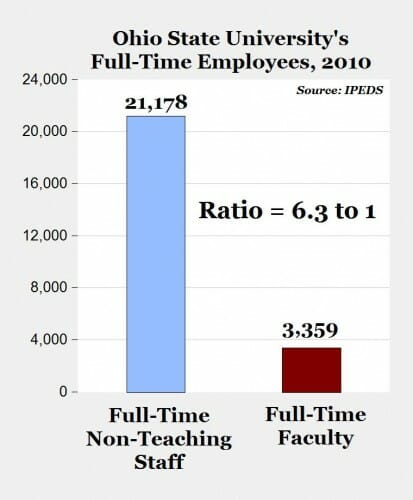This article from the Chicago Tribune on fire retardants has everything, from regulations that benefit a small industry group to tort lawyers effectively forcing the propagation of a bad standard to playing the race card and the "for the children" card in policy debates. Here is a bit of history I did not know:
These chemicals are ubiquitous not because federal rules demand it. In fact, scientists at the U.S. Consumer Product Safety Commission have determined that the flame retardants in household furniture aren't effective, and some pose unnecessary health risks.
The chemicals are widely used because of an obscure rule adopted by California regulators in 1975. Back then, a state chemist devised an easy-to-replicate burn test that didn't require manufacturers to set furniture on fire, an expensive proposition.
The test calls for exposing raw foam to a candle-like flame for 12 seconds. The cheapest way to pass the test is to add flame retardants to the foam inside cushions.
But couches aren't made of foam alone. In a real fire, the upholstery fabric, typically not treated with flame retardants, burns first, and the flames grow big enough that they overwhelm even fire-retardant foam, scientists at two federal agencies have found.
Nevertheless, in the decades since that rule went into effect, lawyers have regularly argued that their burn-victim clients would have been spared if only their sofas had been made with California foam. Faced with the specter of these lawsuits — and the logistical challenge of producing separate products just for California — many manufacturers began using flame retardant foam across their product lines.
The "if only the manufacturer had used technology X, little Sarah would not be dead" argument should be very familiar to readers of Walter Olson's blog. Part II of the story argues that the Tobacco industry helped reinforce this story to shift the blame for fires started by cigarettes to the furniture (can't any of this be, you know, the person's fault who dropped burning items onto flammable items?)
It also, by the way, has plenty of elements of environmental panic in it. For example:
"When we're eating organic, we're avoiding very small amounts of pesticides," said Arlene Blum, a California chemist who has fought to limit flame retardants in household products. "Then we sit on our couch that can contain a pound of chemicals that's from the same family as banned pesticides like DDT."
I am open to believing that flame retardant chemicals pose some harm to humans, though one must posit some way for them to get out of the foam and into people for it to be harmful (just existing nearby is not enough). Further, being from the "same family" as another chemical is meaningless, particularly as compared to DDT which was banned for suspected thinning of bird eggs and not for demonstrated harm to humans.
I finally read through all four parts of the story, and its interesting to compare the approaches to science. The authors make a really good case that the science of flame retardants effectiveness is deeply flawed and that lobbying pressure and actions in tort cases have led to their expanded use rather than any particular benefit.
But the authors' scientific standards change wildly when it comes to their own side's science (I write it this way because the authors clearly have a horse in the race here, they want these chemicals banned). I kept waiting for their bombshell study that these chemicals posed a danger, but we never get it. All we get is the typical journalistic scare quotes about trace quantities of these chemicals being found in house dust and in certain animals.
OK, but with improving detection technology, we are constantly finding traces of chemicals at tiny levels we did not know were there before. How much risk do they pose? We never find out. It would be nice to know. I'm convinced I would rather not have this crap in my couch, but there has to be a better standard for legislation than this. Ironically, the whole point of their story is to highlight regulation pushed by small groups based on bad science, and their response is to ... mobilize a group to push different legislation based on bad science. There is a heck of a lot of "OK for me but not for thee" here.
Here is what is really going to happen: After years of being stampeded by tort lawyers into putting these chemicals into furniture as a defense against "you should have..." lawsuits based on bad science, these same furniture makers are now going to be sued by people claiming the chemicals make them sick based on bad science. And yet another industry will find itself in a sued-if-you-do-sued-if-you-don't trap.
The one group never interviewed in all four parts were furniture makers. It would have been fascinating to get an honest interview out of them. I am sure they would say something like "legislatures just need to tell us what they freaking want, chemicals in or out, and then shield us in the courtroom when we follow the law."
Update: The updates to the story are classic. After describing how the race card was abused in what should have been a straight up fight over chemical effectiveness and safety, the authors then pen a story called "Higher Levels of Flame Retardants in Minority Children." It's OK, I guess, to play the race card in a scientific debate if it is for your own side.


